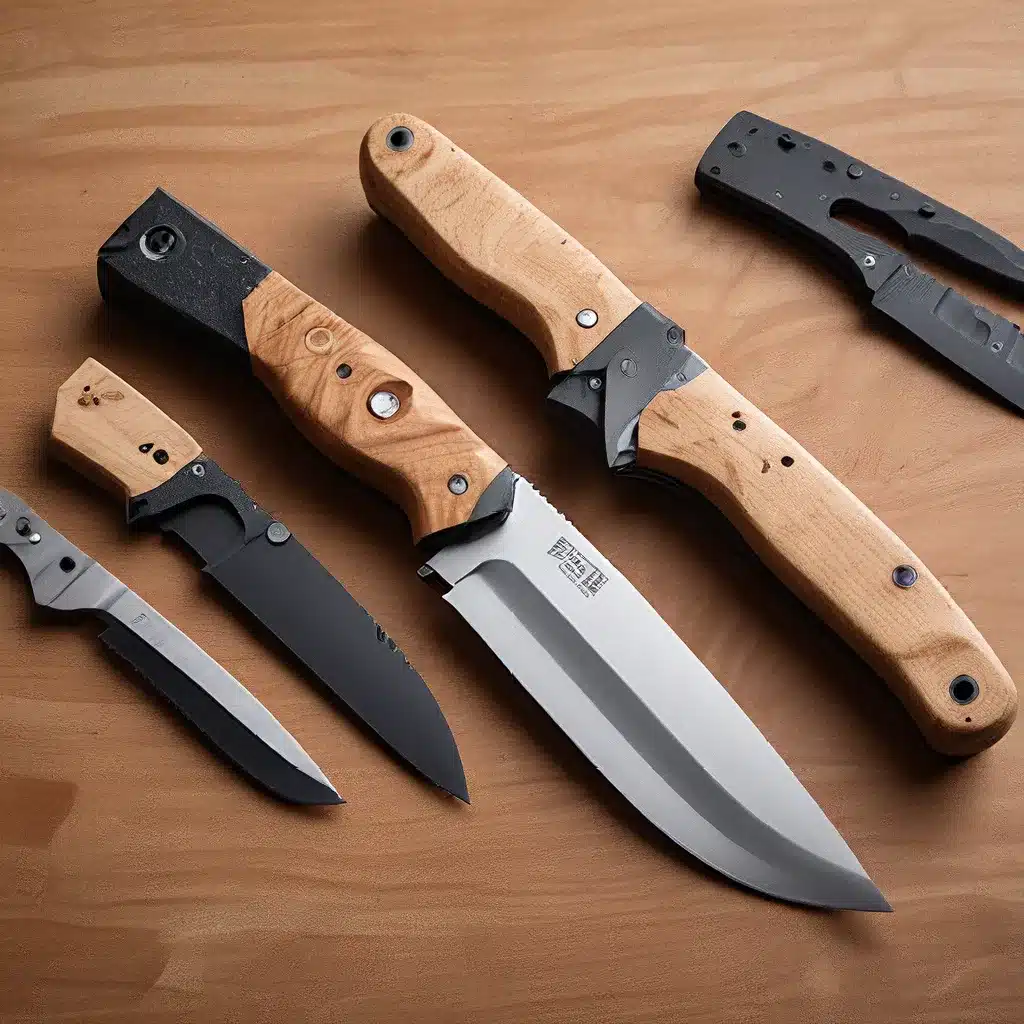
As someone who has always been fascinated by the art and science of knives, I can tell you that the industry is undergoing a remarkable transformation. The smart, connected products that are revolutionizing everything from appliances to cars are now making their mark on the world of knife design, and the results are nothing short of breathtaking.
The Digitization of Knives
In the past, knives were fairly straightforward – a blade, a handle, and not much else. But just as information technology has disrupted countless other industries, it’s now reshaping the very nature of what a knife can be. Today’s knives are complex systems that combine hardware, sensors, electronics, and software, all connected through the internet.
These smart, connected knives offer a level of functionality and precision that was unimaginable just a few years ago. With built-in sensors, they can provide real-time feedback on everything from blade sharpness to the pressure being applied. Integrated microprocessors and data storage allow for customizable settings, automated adjustments, and even intelligent recommendations based on the task at hand.
But the true power of these innovations lies in their network connectivity. By connecting knives to the internet of things, manufacturers are opening up a world of possibilities. Imagine a knife that can communicate with your smart kitchen to suggest the perfect blade for the ingredient you’re preparing, or one that can automatically adjust its settings based on the dish you’re cooking.
Redefining Product Boundaries
The impact of these technological advancements goes far beyond just knives. As Michael Porter and PTC CEO James Heppelmann have observed, smart, connected products are disrupting value chains and forcing companies to rethink nearly everything they do – from how they design and source their products to how they manufacture, operate, and service them.
For the knife industry, this means that traditional boundaries are being blurred. A knife is no longer just a tool; it’s a complex system that can integrate with a broader ecosystem of smart devices and services. And as these capabilities continue to evolve, the very definition of what a knife is may need to be reevaluated.
Collaboration and Innovation
At the forefront of this transformation is Collins Aerospace, a company that has been collaborating with its customers and partners to dream, design, and deliver solutions that are redefining the future of the industry. By drawing on its vast portfolio of expertise, Collins is bringing together the most powerful concepts in aerospace and applying them to the world of knives.
The results of this cross-pollination are truly exciting. Imagine a knife that can automatically adjust its blade angle and cutting force based on the type of ingredient you’re working with, or one that can provide step-by-step guidance for complex culinary techniques. These aren’t just pipe dreams; they’re the kinds of breakthrough solutions that are being developed right now, thanks to the collaboration between industry leaders and innovative thinkers.
Navigating the Challenges
Of course, with such rapid change comes a host of challenges. As Johnson, Harvard Business School professor Christensen, and SAP co-CEO Kagermann have noted, established companies often struggle to capitalize on game-changing opportunities because they don’t fully understand their current business model or know how to build a new one.
For the knife industry, this means grappling with questions like: How do we balance the need for technological innovation with the traditional values of craftsmanship and artistry? How do we ensure that these smart, connected knives remain accessible and affordable for the average consumer? And how do we navigate the complexities of data privacy and cybersecurity in a world where our knives are constantly communicating with the cloud?
These are the kinds of issues that industry leaders are tackling head-on, and the solutions they develop will have far-reaching implications. After all, the future of knife design is not just about creating the latest gadgets or gizmos; it’s about redefining the very way we interact with and experience these essential tools.
A Future of Possibilities
As I reflect on the incredible advancements happening in the world of knives, I can’t help but feel a sense of excitement and wonder. The innovations that are reshaping the industry are not just about making our lives more convenient; they’re about unlocking new possibilities, solving long-standing problems, and pushing the boundaries of what we thought was possible.
And the best part? This is just the beginning. As technologies like the internet of things, artificial intelligence, and advanced materials continue to evolve, I can only imagine what the next generation of knives will look like. Will we have knives that can automatically sharpen themselves, or ones that can provide personalized cooking recommendations? The possibilities are endless, and I, for one, can’t wait to see what the future holds.
So, if you’re a fellow knife enthusiast, I encourage you to keep your eyes peeled and your mind open. The revolution is already underway, and it’s going to be one heck of a ride. And who knows, maybe your next favorite knife will come from Herman Knives – a company that’s right at the forefront of this exciting new frontier.


